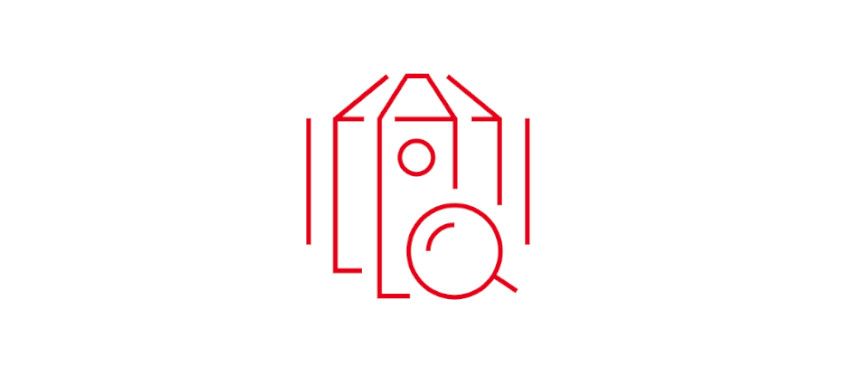Working at height remains one of the most hazardous activities within the industrial and construction sectors. In addition to fall risks, the vertical workplace may contain other hazards: exposure to harmful chemicals including, cleaning products, paints, and solvents, and hazardous dusts, such as asbestos and polychlorinated biphenyls (PCBs). Mitigating multiple risks presents unique challenges for health & safety managers because it involves the specification of several diverse types of Personal Protective Equipment (PPE) – all of which need to work in harmony to achieve the necessary levels of worker protection.
Working at Heights e-Guide
This e-Guide provides a comprehensive overview of the complexities involved in selecting and managing PPE for working at heights. It outlines the multiple risks associated with aerial work, the critical role of PPE in mitigating these dangers, and the legal frameworks governing workplace safety. Using the challenges of deploying protective chemical coveralls with safety harnesses as an example, the e-Guide then considers the difficulties of ensuring PPE compatibility and explains how k8ÓéÀÖ is addressing these issues through recent developments in protective garment design.
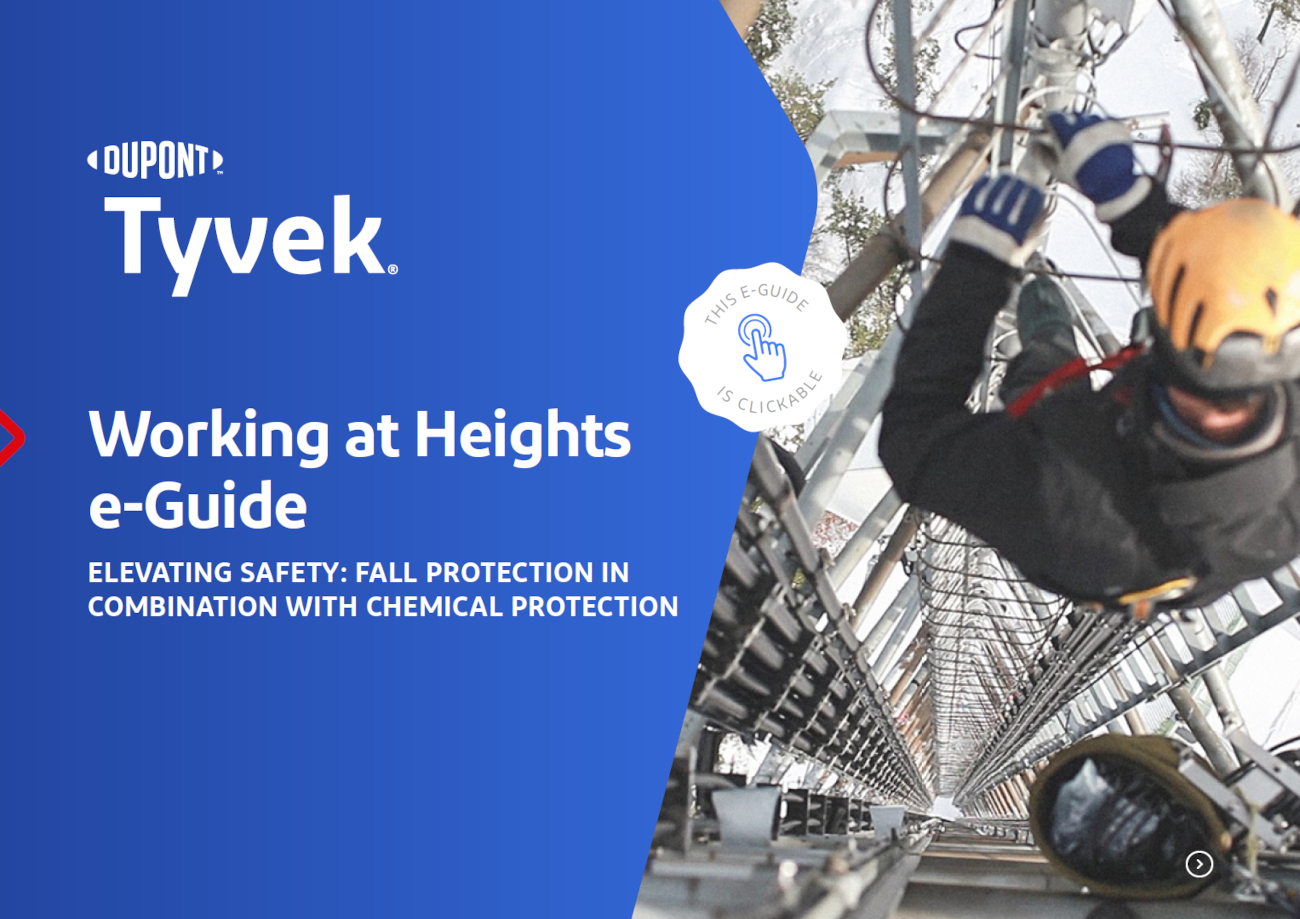
Elevating safety through new garment design
k8ÓéÀÖ chose to work with safety harness manufacturers to develop a protective garment that could be worn over a full-body harness, protecting both the harness and the wearer from chemical hazards. The development process considered the specific requirements of full-body harness wearers and recognized the performance differentiators in designing a garment that is compatible with such harnesses.
Key design aims were:

Accurate alignment of access points for D-Rings
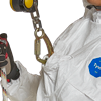
Easy access to all D-Rings without the need to remove or adjust the garmen
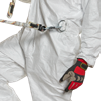
Protection for the wearer
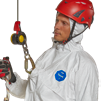
Protection for the harness to extend wear life
Multiple Benefits
Using this new harness-compatible coverall brings far-reaching benefits.

Improved compliance
The garment provides an added layer of protection against chemical hazards without compromising the integrity or functionality of compatible harnesses, which helps improve compliance.

Enhanced efficiency
Easy access to the D-Rings on compatible harnesses means that setup and usage time may be significantly reduced, which helps workers to focus on their tasks without interruption, enhancing productivity.

Lower costs
Helping to extend the wear life of full-body harnesses reduces the frequency of replacements and maintenance, lowering long-term costs

Better quality
With the assurance of k8ÓéÀÖâ„¢ °Õ²â±¹±ð°ì® 500 HP garments, wearers can be encouraged to invest in superior, more durable harnesses that offer enhanced fall protection and improved return on investment.
Featured Case Study
k8ÓéÀÖ Designs Chemical Protection for Full-Body Harness Wearers, Leveraging MSA’s Expertise in Fall Protection
As a leading PPE manufacturer, k8ÓéÀÖ was determined to develop a garment that would improve chemical protection for workers and their safety harnesses because it could be worn over the harness rather than beneath it. To achieve this aim, k8ÓéÀÖ needed to work with a company with in-depth knowledge of fall protection. Safety expert MSA recognised the project’s potential immediately, resulting in close collaboration.
Ìý
